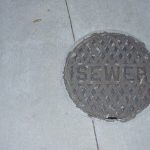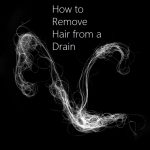Living in the information age should mean that we can find out pretty much anything and the answers will be accurate. Sadly, this is not the case in many aspects of our lives and this equally true when it comes to
plumbing issues. Many old wives tales are still believed to be correct due to misinformation and a general lack of plumbing experience. This can make it difficult to make good decisions for your home and your plumbing system. In this article we will debunk four common plumbing myths and if you need more information contact your local certified plumber for expert help and advice.
- You Can Save Water by Placing a Brick in the Toilet
A brick belongs in a wall or out on the street, and you shouldn’t place on in any plumbing fixture in your home. Putting heavy items in your toilet is a great way to damage your flapper, and then you will need to flush twice, and this will waste water anyway. Most types of bricks tend to deteriorate and crumble over time, and this will introduce sediment into your toilet water that may make it harder to flush. If you’re interested in saving water consider installing a water conserving toilet instead.
- A Toilet is Fresher if You Use Bleach Tablets
This is a bad idea; toilet tablets typically have a very high concentration of bleach, and this is left to sit in your toilet for prolonged periods of time. This heavy bleach concentration can actually damage the inside of your toilet bowl in just six months. A toilet bowl cleaner that contains bleach is a great idea if you squirt it in, swish it around with the toilet brush and then flush it away. But, if the bleach is left to sit in the toilet bowl for longer than eight minutes, you will cause damage to the toilet.
- If You Hear Rumbling Noise in Your Water Heater, it’s Set to Explode
This is extremely unlikely, the rumbling or gurgling noise that you can hear is probably sediment being moved inside the water heater near the burner unit at the bottom of the unit. There is air popping inside the water heater; it can’t rise to the top to disperse because the sediment content is blocking its progress. Contact your local certified plumber; they can drain and flush the water heater to remove the sediment content.
- Flushable Toilet Cleaning Wipes Can be Flushed Away
In recent years, “flushable” toilet wipes have become increasingly popular for cleaning toilets. This isn’t surprising, cleaning a toilet and then flushing away the wipe would be very convenient, but it doesn’t work this way in practice. These “flushable” toilet wipes can easily cause blockages in toilets, and they are not as biodegradable as the marketing hype would suggest. Avoid using these types of cleaning products, use a toilet cleaning liquid that contains bleach, and a toilet brush as mentioned earlier for the best results.
By Giovanni Longo President Flood Brothers Plumbing
Giovanni Longo is a 3rd generation master plumber who has been practicing his craft and trade in the greater Los Angeles area for well over a decade and a half. A plumbing and hydraulics-engineering innovator, Giovanni’s particular world-class expertise focuses on dealing with challenging sewer system designs as well as resolving complex commercial and residential draining issues. As a certified Flood Mitigation expert, he is also well versed in a wide variety of water damage and remediation solution.





